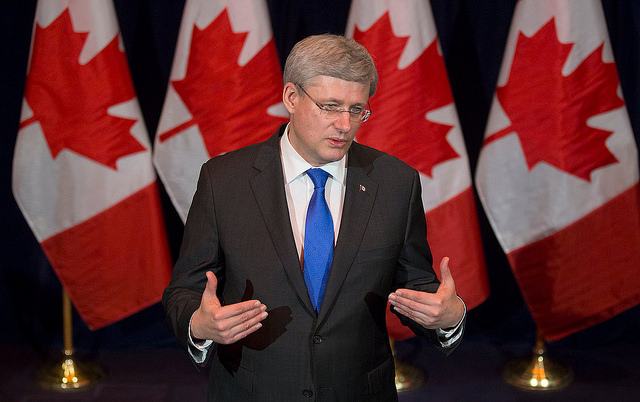Like this article? rabble is reader-supported journalism. Chip in to keep stories like these coming.
What is a deficit and should I care about party promises related to deficits?
A deficit happens when a government spends more money than it receives in revenue. To pay for a deficit, governments borrow money, which they finance through debt. Many programs should be debt-financed, like long-term infrastructure projects, so debt and deficits in and of themselves are not bad.
Many years of running a deficit is usually a sign of a structural problem, and revenues (like taxes) should be increased. Or, programs should be cut.
When the average person hears “debt” it tends to have negative connotations, mostly because personal debt does tend to be bad. But remember: governments are not people!
Deficits are mostly political hype and they play into the preferred frame of the Conservative message. The Conservatives did, after all, introduce legislation that would legislate a balanced budget and limit deficits to $3 billion.
This year, the Conservatives had forecasted a surplus of $2.9 billion. But, it’s becoming clear that they, instead, will probably have a deficit of about $1.5 billion. In 2013-14, the deficit was $5.2 billion and $18.4 billion in 2012–13.
If you’re trying to keep track of the party promises, Andrew Coyne summed it up nicely: “NDP: we’d get rid of the deficit. Liberals: we’d keep the deficit. Tories: what deficit?”
The Tories are the only party that know the true extent of their own spending. It is likely the case that if they lose, the new government will announce that they were shocked to find a larger deficit than Harper had let on about. The Conservative base like the sound of balanced budgets, but considering their record, Canadians should be skeptical when Harper says they’ll balance the budget.
Especially since sure, they probably will try to balance the budget, by cutting deeper into public services.
Mulcair is playing a serious game and has promised to balance the budget in the first year of their term. The NDP plans to get rid of income-splitting and increase corporate taxes, but other details (like what they might cut to balance the books) has not yet been released.
The NDP needs to be careful as they’re treading on thin ice: NDP supporters don’t necessarily oppose deficits and would welcome spending announcements much more than a promise to balance the budget. Without having the full picture of the Harper government’s finances, it’s premature to make any statements on what they will do. For them, like the Conservatives, the deficit is a political object.
The Liberals are third in the polls and they have the most freedom to maneuver on the question of the deficit. They also have a good record of generating surpluses, even if it comes at the expense of cutting billions from social transfers. Trudeau’s now famous “the budget will balance itself” line is shockingly honest. It is as if he’s saying: it’s not our principle concern. And it probably shouldn’t be. In the end, apparently good economic managers can run deficit after deficit and still maintain their popularity.
Trudeau’s laissez-faire opinion has been sharpened since, and they plan to run a deficit for the first three years in office.
Nestled in all of these promises are very different political strategies. It’s a proxy war that’s being waged by talking about deficits. The real question is will we take the bait: what’s more important to us? A job creation strategy that helps boost public services, or numbers on a balance sheet that can be made to say whatever a politician wants?




